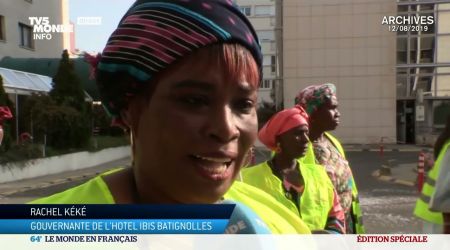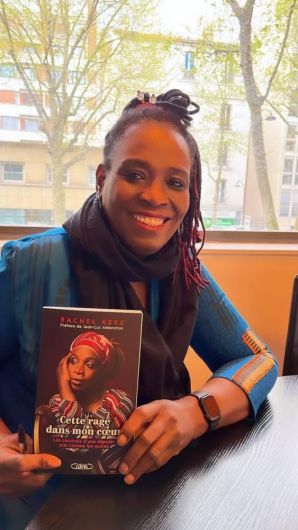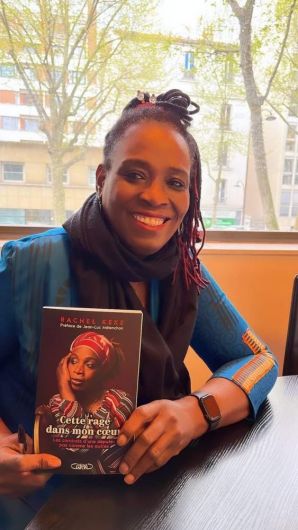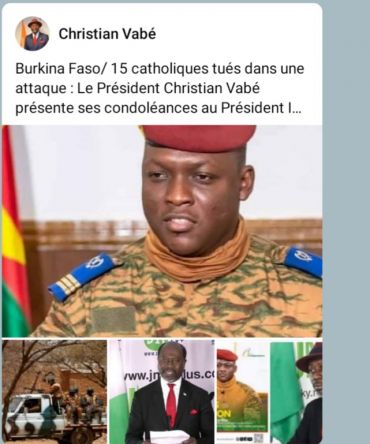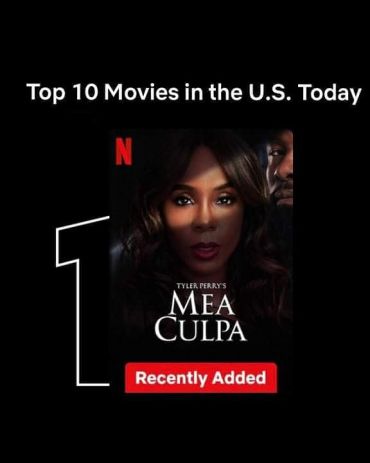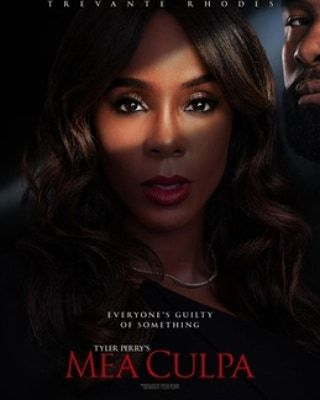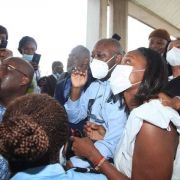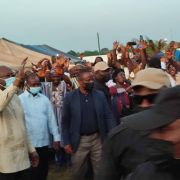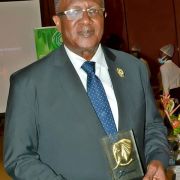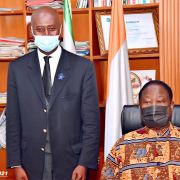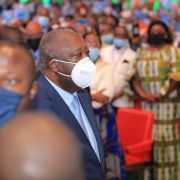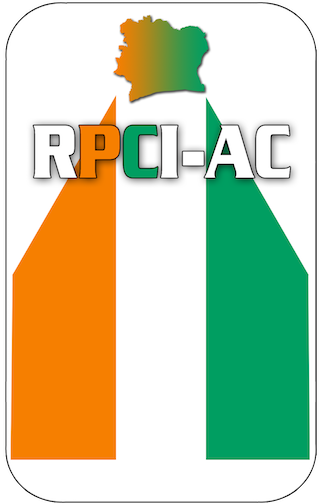Urgent Former African Heads of states Appeal to Bensouda: CÔTE D’IVOIRE AND AFRICA NEEDS GBAGBO IN ORDER TO ACHIEVE PEACE AND JUSTICE!
Par Elitetv1international.com - AN URGENT AFRICAN APPEAL TO THE PROSECUTOR OF THE INTERNATIONAL CRIMINAL COURT. CÔTE D’IVOIRE AND AFRICA NEEDS FORMER PRESIDENT LAURENT KOUDOU GBAGBO IN ORDER TO ACHIEVE PEACE AND JUSTICE!

AN URGENT AFRICAN APPEAL TO THE PROSECUTOR OF THE INTERNATIONAL CRIMINAL COURT. CÔTE D’IVOIRE AND AFRICA NEEDS FORMER PRESIDENT LAURENT KOUDOU GBAGBO IN ORDER TO ACHIEVE PEACE AND JUSTICE!
1.As Africans we are deeply concerned that our Continent, Africa, should resolve its problems as urgently as possible, including the interconnected challenges of peace and justice in post-conflict countries.
2.This urgent Appeal we address to you concerns the situation in Côte d’Ivoire and in particular it’s former President, Mr Laurent Gbagbo, who, as you know, is currently standing trial at the International Criminal Court.
3.We make it in the context of our serious concern that Côte d’Ivoire should continue to grow and develop for the benefit of all its citizens, in conditions of peace, democracy and the rule of law, national reconciliation and unity.
4.We are absolutely convinced both that the country can and must achieve these objectives and that Mr Laurent Gbagbo can and would make an important and unique contribution in this regard.
5.Needless to say, he cannot make this contribution from a prison cell somewhere in the world but as a free citizen in his own country.
6.Within the context of what we have said, which relates to the unresolved conflict in Cote d’Ivoire, we would like to say that the detention and trial of Laurent Gbagbo have further entrenched the divisions and animosities among the Ivorian people. This development is fuelling the country’s slide towards the resumption of the civil war which would claim the lives of hundreds of thousands of innocent people.
7.There is a real risk therefore that should the ICC find him guilty and sentence him to any term of imprisonment this could very well serve as the spark that results in the destructive conflagration we fear.
8.Madame Prosecutor, it is vitally important that in the context of the above there is profound appreciation of the fact that the events which brought Laurent Gbagbo to the ICC were the outcome of an intense and historic strategic political struggle about the future of Côte d’Ivoire, and that this contestation continues to this day.
9.Thus you will understand that notwithstanding the good faith in which your Office will have discharged its formal legal functions, a significant section of Ivorian society, particularly the supporters of Laurent Gbagbo, will view the intervention of the ICC as an extension of the political domination by the other side – a manifestation of “victor’s justice”. Yet the situation in Côte d’Ivoire requires and demands that the Ivorian people continue to engage their strategic challenges by democratic means and in a truly inclusive manner, working together in conditions of peace.
10.The polarisation around the question of the prosecution of Laurent Gbagbo is fuelled by the understanding within Côte d’Ivoire, which is corroborated by information in the public domain, that violations were in fact committed by all sides in the then conflict. The Historical Context of the Ivorian Crisis
11.Madame Prosecutor, we hope you will bear with us as we substantiate some of the comments above by briefly reflecting on some of the political developments in Côte d’Ivoire during the last fifteen (15) years.
12.As you know, before Mr Laurent Gbagbo was elected President of Côte d’Ivoire in 2000, his predecessors had introduced a philosophy which they designated as “ivoirité”. Essentially this sought to divide the Ivorian population into two groups. Over the years Côte d’Ivoire had attracted large numbers of economic migrants with the majority of these coming from Burkina Faso. The concept of ivoirité made the assertion that the population of Côte d’Ivoire was divided into two parts – one part being the indigenous Ivorians and the second being the economic migrants we have mentioned. The policy of ivoirité sought to discriminate in favour of the indigenous Ivorians who were mainly Christian.
13.As it happened, the economic migrants, largely Moslem, constituted the majority of the population in the North of the country.
14.As a consequence of Constitutional provisions based on this ivoirité, the current President of Côte d’Ivoire, Mr Alassane Ouattara, himself a Moslem, was excluded from running for the position of President of the Republic on the basis that his parentage made him a Burkinabe rather than an Ivorian. Naturally this had a negative impact on the Moslem economic migrants largely from Burkina Faso who were resident in the North of Côte d’Ivoire. It was therefore obvious that these would also support Mr Ouattara.
15.Mr Gbagbo was elected President of Côte d’Ivoire in 2000. In 2002, while he was out of the country on a state visit, an armed rebellion broke out in the country. Though it was suppressed in the South of the country, it resulted in the rebels (the Forces Nouvelles) seizing the North, thus breaking the country into two. Thus Côte d’Ivoire became two territories, each with its own government and army.
16.As part of the process of ending the civil war, the United Nations deployed a peacekeeping mission, named UNOCI. France deployed its own independent peacekeeping force.
17.Following those held in 2000, the next Presidential Elections were supposed to be held in 2005. However, because of the war situation in the country, and its attendant consequences, these Elections were only held towards the end of 2010.
18.In the meantime the Ivorian parties had entered into various agreements to end the civil war and to return the country back to normality. In this context they had also agreed to hold peaceful, free and fair Presidential Elections.
19.Of major significance in this regard was the decision taken by then President Gbagbo in 2005 to use exceptional Presidential powers provided for in the Ivorian Constitution to enable Mr Alassane Ouattara to contest the position of President of the Republic of Côte d’Ivoire.
20.1. It was because of this decisive contribution made by Mr Gbagbo that it became possible for the Ivorian Parties, again in 2005, to sign an agreement which among others: 20.1. Formally ended the war throughout the Ivorian territory;
20.2. Laid down processes relating to the implementation of the National Disarmament, Demobilisation and Reintegration (DDR) Plan for the armed forces;
20.3. Brought the Forces Nouvelles back into the Transitional Government;
20.4. Spelt out provisions on the structure and functioning of the Independent Electoral Commission; and,
20.5. Indicated a timetable for the holding of Presidential and Legislative Elections.
21.The Parties had agreed that to enable these Elections to take place, it would be necessary, among others:
21.1. To re-unite the country under one administration; and,
21.2. To integrate the armed groups in one national (republican) army.
22.During 2005, the Ivorian Parties requested the United Nations, through its Secretary General, to run the Presidential Election. The UN turned down this request on the basis that Côte d’Ivoire was not a failed state and had constitutionally prescribed institutions to run the Elections. This was unlike Timor l’Este where the UN did run the first elections as there were then no equivalent state institutions in what was a brand new country. Responding to the request of the Ivorian Parties, the UN Security Council authorised the appointment of a UN High Representative for Elections who would assist the Ivorian electoral institutions.
23.Regrettably, because of external pressure, the Presidential Election was held prior to the realisation of the two agreed objectives of the reunification of the country and the creation of one national army. The two final candidates were Messrs Laurent Gbagbo and Alassane Ouattara.
24.The result of the contest was that the election results as announced by the Independent Electoral Commission (IEC), which decided that Mr Ouattara had won, merely entrenched the division of the country as the rebel controlled areas were reflected as having voted for Mr Ouattara and the government controlled ones for Mr Gbagbo. The Head of UNOCI who acted as the UN High Representative for Elections also announced that Mr Ouattara had won the elections.
25.The Ivorian Constitution provided that the final arbiter of any national election, including the Presidential, is the Constitutional Council (CC) and not the IEC. The IEC submits its report to the CC which has the power to alter the determination of the IEC on the basis of its own assessment of any element of the elections.
26.Exercising its own mandate, the CC annulled the elections in various parts of the territory controlled by the Forces Nouvelles on the basis that it had concrete evidence that extensive fraud, etc, had occurred in these areas. It determined that Mr Gbagbo had won the elections.
27.Despite the fact that the UN Security Council had mandated the UN High Representative for Elections only to act in support of the Ivorian electoral institutions, this Representative elected to endorse the finding of the IEC that Mr Ouattara had been elected and openly repudiated the determination of the CC that Mr Gbagbo was the victor.
28.In this situation Mr Gbagbo called for a recount of the votes and suggested the involvement of various international institutions in this process, including the United Nations, the African Union and the European Union. This call was ignored by the UN and everybody else concerned.
29.Mr Gbagbo ultimately contacted the African Union and informed the organisation that he was ready and willing to leave the President’s seat in order to end the conflict in the country. He requested that the AU should send a delegation to Côte d’Ivoire to facilitate the process of his handover to Mr Ouattara so that the then current conflict was brought to an end and future conflict was avoided. The AU accepted this proposal.
30.Accordingly, the AU informed UNOCI that a delegation of African Heads of State would visit Abidjan to carry out their mission as proposed by Mr Gbagbo. UNOCI undertook to make the necessary security arrangements for this delegation and would communicate these to the AU. This was never done. As a result of this the AU never succeeded to carry out its mission which would have resulted in ending the then conflict peacefully.
31.Instead, during 2011, both the UN, through UNOCI, and France, through Opération Licorne, deployed in Côte d’Ivoire as neutral peace keeping forces, commanded these forces to launch military attacks against Mr Gbagbo. They then captured him and handed him over in fact to the same Forces Nouvelles which had rebelled against the elected government of Mr Gbagbo in 2002.
32.In 2011, subsequent to Mr Gbagbo’s transfer to the ICC, National Assembly Elections were held in Côte d’Ivoire. Mr Gbagbo’s political party, the FPI, called for a boycott of the elections and did not participate in these. More than sixty percent (60%) of the registered voters did not participate in the elections.
33.Madame Prosecutor, in the eyes of many Ivorians the foregoing tells a story of a litany of injustices. This serves as one of the principal factors which feed the dangerous division and animosity affecting large sections of the Ivorian population – among others being that:
33.1. An armed rebellion took place in Côte d’Ivoire in 2002 seeking the violent and unconstitutional overthrow of then President Gbagbo and his government. Nobody was ever prosecuted for this act of treason.
33.2. Rather, the coup plotters were allowed to sustain their existence for many years, arms in hand, until they could accomplish their goal of seizing power in Abidjan in 2011.
33.3. As we have said, external pressure was applied to oblige then President Gbagbo to agree to the holding of Presidential Elections in conditions which were contrary to negotiated agreements among the Ivorian Parties, which conditions guaranteed that the elections would neither be free nor fair.
33.4. Again as we have observed, the UN High Representative for Elections in Côte d’Ivoire exceeded his powers and violated the Constitution of Côte d’Ivoire by announcing that Mr Ouattara had been elected President during the 2010 elections, basing himself on the decision of the IEC rather than the constitutionally authorised Constitutional Council.
33.5. This in turn served as the trigger for the UN and French forces to abandon their neutral peacekeeping mandates, thus to allow the rebel Forces Nouvelles to advance into Abidjan to remove President Gbagbo by force. Both the UN and the French joined the Forces Nouvelles to carry out the attack against Mr Gbagbo and subsequently arrested Mr Gbagbo and handed him over to the Forces Nouvelles.
33.6. Especially the UN High Representative for Elections failed to act on the very normal request by Mr Gbagbo to hold an internationally supervised recount of the votes to end the controversy about who had won the Presidential Election, even after Mr Gbagbo also stated that both he and Mr Ouattara should accept the result of the recount as final and binding.
33.7. The UN in particular, and others, failed to acknowledge the vital role Mr Gbagbo played to bring peace to Côte d’Ivoire when he used exceptional Presidential powers provided by the Constitution to allow Mr Ouattara to run for the post and serve as President of the Republic if he won the elections. Thus did Mr Gbagbo boldly address one of the central matters that had led to the 2002 rebellion and attempted coup d’etat, and therefore begin the process of the repudiation of the divisive policy of ivoirité which his predecessors had instituted.
33.8. Similarly, these players paid no attention to the vitally important position which then President Gbagbo had taken when he agreed that an inclusive multi-party interim Government should manage the transition leading to the Presidential Elections. To emphasise his determination in this regard, he even agreed that the leader of the Forces Nouvelles should serve as the Prime Minister, heading the Interim Government.
33.9. Further, and of critical importance, we do not believe that given their protracted involvement in the matter of the Ivorian conflict, the UN and France were not aware of the reality which US Ambassador to Côte d’Ivoire, Wanda L. Nesbitt, communicated to her Government in July 2009 saying: “It now appears that the Ouaga IV agreement, [the fourth agreement to the Ouagadougou Political Agreement which prescribed that disarmament should precede the elections], is fundamentally an agreement between Blaise Compaore [President of Burkina Faso] and Laurent Gbagbo to share control of the north until after the presidential election, despite the fact that the text calls for the Forces Nouvelles to return control of the north to the government and complete disarmament two months before the election… “But the 5,000 Forces Nouvelles soldiers who are to be “disarmed” and regrouped into barracks in four key cities in the north and west until a new national army is created, represent a serious military capability that the FAFN [Forces Nouvelles] intends to keep well-trained and in reserve until after the election. The hand-over of administrative power from the FAFN to civilian government authorities is a prerequisite for elections but, as travelers to the north (including Embassy personnel) confirm: the FAFN retain de-facto control of the region especially when it comes to finances.”
34.Once more in the eyes of millions of Ivorians, the foregoing and other elements of Ivorian history tell a very disturbing story. That story is that from the time of President Felix Houphouet-Boigny, including when Mr Alassane Ouattara was his Prime Minister, there has existed a plan to neutralise Mr Gbagbo and the political formation to which he belonged, the Front Populaire Ivorien (FPI). During this period Mr Gbagbo was twice imprisoned for long periods and otherwise suffered constant harassment by the state security organs because of his sustained political campaign to democratise Côte d’Ivoire and free it from neocolonial control.
34.1. For those millions of Ivorians who shared Mr Gbagbo’s views, it is logical to conclude that this plan to neutralise Mr Gbagbo and the democratic movement he led was supported by some Ivorians and some external forces.
34.2. These combined forces acted in 2002 to remove then President Gbagbo by force and failed.
34.3. However they ensured that the armed group that had tried to carry out a coup d’etat should remain in place, ready to try another coup d’etat once the conditions for this re-emerged – hence the occupation of the North and parts of the West of Côte d’Ivoire by the Forces Nouvelles.
34.4. In the end the moment came when eight years after the 2002 attempted coup d’etat, Côte d’Ivoire held the Presidential Elections in 2010.
34.5. It is clear to his Ivorian supporters that all means were taken to ensure that Mr Gbagbo loses these elections. This is why no action was taken to recount the votes as suggested by Mr Gbagbo. This is despite the fact that this is a very normal process in instances where there are sharp differences about who has won and who has lost during elections.
34.6. It is also clear to them that preparations were also made to remove Mr Gbagbo by force if he contested his electoral loss, however justified this contestation.
34.7. It was for this reason that the Forces Nouvelles were allowed to behave as they did as reported by US Ambassador Nesbitt. [See: Paragraph 33.9. above.]
34.8. It was also for this reason that the African Union (AU) was blocked from intervening to ensure the peaceful resolution of the post-Presidential Election conflict which had started in December 2010. We should also note that the AU would also have sought to negotiate an agreement especially between Messrs Gbagbo and Ouattara to address some of the structural faults in Côte d’Ivoire which were impacting negatively on its independence and stability.
34.9. Finally to neutralise Mr Gbagbo and the democratic and anti-neo-colonialist movement he led, it was decided that the best thing to do would be to charge him in a court of law, find him guilty on various counts and imprison him for a long period.
34.10. The same would be done with a critical mass of the leaders and activists of the FPI.
34.11. Many Ivorians believe that part of this task would be delegated to the International Criminal Court (ICC), which would thus serve as a useful instrument in terms of the accomplishment of the strategic task to eradicate the movement dedicated to the fundamental renewal of the Côte d’Ivoire.
35.Pertinent questions for the ICC
35.1. Therefore the question arises as to how the ICC should respond to this situation in which the removal of Laurent Gbagbo from Côte d’Ivoire is jeopardising the prospects of stability in that country, and the Court is perceived by a significant section of Ivorian and African society as having been co-opted by one political faction to neutralise Laurent Gbagbo and his party!
35.2. This question must surely weigh heavily on the Court, particularly in the light of the adverse effects of its action on the critical and urgent need to prevent a return to war and achieve national reconciliation in Côte d’Ivoire, which results will not be achieved without the participation of Mr Gbagbo, the FPI, and their followers.
35.3. While our engagement with them informs us that the FPI is keenly interested that such national reconciliation should take place and is committed to participate in this process, it will not do so without Mr Gbagbo, who is himself determined to contribute to this reconciliation without seeking re-election to any governance institution.
35.4. While we acknowledge that the Prosecution must follow its evidence in bringing the charges, and is entitled to await the final determination of each case by the judges, we consider that a re-assessment of Mr Gbagbo’s case is merited by the current fragility of the situation in Côte d’Ivoire, and by his particular circumstances, especially the need for his positive engagement in the processes of national reconciliation, unity and stabilisation. In this regard, it is very relevant that:
(i) Mr Gbagbo was not the cause but the target of the resort to arms by others in 2002 to address political differences;
(ii) Mr Gbagbo was not the originator but an opponent of the policy of ivoirité which lay at the base of the conflict;
(iii) Mr Gbagbo, against the wishes of large numbers of Ivorians, acted to enable Mr Ouattara to accede democratically to the Presidency of Côte d’Ivoire, and thus communicated the message to the millions of resident economic migrants that they would not be treated as second-class citizens;
(iv) Mr Gbagbo was so interested that Côte d’Ivoire re-establishes itself as a democracy that he even allowed those who had sought to remove him by coup d’etat to lead the Government that would oversee the transition to democracy, in the person of the leader of the Forces Nouvelles;
(v) Mr Gbagbo was committed to step down as President of the Republic in favour of Mr Ouattara despite his conviction that he had won the elections, thus to save the country from more deaths, suffering and destruction of property; and,
(vi) Even some judges within the ICC have raised questions about the existence of sufficient evidence to convict Mr Gbagbo.
36.The Ivorian context and popular perceptions
36.1. As you will have seen in our preceding comments, Madame Prosecutor, the arrest of President Gbagbo in Côte d’Ivoire and his experiences in The Hague, have taken place within the context of a highly polarised political situation which resulted in the long civil war in Côte d’Ivoire and the division of the country.
36.2. It was inevitable in these circumstances that the arrest warrants for Laurent and Simone Gbagbo and Charles Blé Goudé would fuel the perception that a victor’s justice is at play at the ICC: a perception aggravated by the stark contrast that no cases have been brought against any of President Gbagbo’s political opponents.
36.3. For significant sections of the population of Côte d’Ivoire, therefore, the Court’s other insistence that Simone Gbagbo must still be surrendered to the ICC to face trial, has accentuated this perception of partial justice, which has been further entrenched by the arrest and transfer to the ICC of Mr Blé Goudé.
36.4. The well-publicised experiences of Mr Gbagbo at the ICC, some of which we highlight below, have added to the discontent of large sections of the Ivorian population and imperil any project of national cohesion and the prospect of healing.
36.5. As you will know well, and as we have sought to demonstrate, Laurent Gbagbo remains a key player in Ivorian politics with a large following, whose continuing absence from what should be a collective search for national reconciliation and stability in Côte d’Ivoire is placing at serious risk the peace and stability of the country.
36.6. In addition, certain features of the ICC proceedings thus far are also aggravating the polarising effect of Gbagbo’s arrest, detention and prosecution.
37.The questions raised by the confirmation process
37.1. As you know, Madame Prosecutor, the progress of Mr Gbagbo’s case is followed very closely in Côte d’Ivoire, and the process of the confirmation of the charges preferred against Laurent Gbagbo was of particular interest. It is fair to observe that this process was not smooth. You will recall that in June 2013, by a majority decision, Pre Trial Chamber (I) found that there was insufficient evidence adduced at that stage to confirm the charges brought against Mr Gbagbo.
37.2. The fact that the Chamber nevertheless allowed the prosecution additional time to provide more evidence to strengthen its case, and one year later, in June 2014, the Chamber was able to confirm those charges only by the decision of the majority was not lost on observers. Neither was the fact that one of the learned judges gave a completely Dissenting Opinion, explaining why she remained unconvinced about the quality of the evidence supposedly pointing to Mr Gbagbo’s involvement in the alleged crimes.
37.3. To interested observers, especially within but not only in Côte d’Ivoire, this was therefore a qualified endorsement of the charges against Laurent Gbagbo, and furthermore the split in judicial opinion has added to the perception of the legal deficiency of the case against Mr Gbagbo.
37.4. Even worse, you will understand, Madame Prosecutor, that all this has firmly suggested to Mr Gbagbo’s supporters that he never had a case to answer in the first place, and that the ICC was at pains to ensure that the pre-determined objective to find him guilty was achieved.
38.The delays in the case
38.1. There are other elements of the case which need to be borne in mind. Nearly four years after his transfer to the Hague, the trial of Mr Gbagbo has still not commenced. Although this delay has arisen for a range of reasons, including the sheer complexity of the procedures, and the necessity to ensure that all sides are adequately prepared for any trial; and although delay in the context of ICC cases may not be unusual, it is undeniable that the longer this case has gone on, the more it has served to stoke the political tensions within Côte d’Ivoire to which we have already referred.
38.2. As you would know, the delays would be seen by Mr Gbagbo’s followers as a deliberate and hostile expression of the principle – justice delayed is justice denied.
39.Prolonged detention
39.1. The delay in this case is significant at a level personal to Mr Gbagbo because of his continuing detention in The Hague. Despite the best efforts of his defence team, he has been unable to secure interim release even though, according to the decisions of the Court, a third State had apparently agreed that Mr Gbagbo could be released into its oversight, and that it would ensure his attendance at the Court whenever required. A particularly sad aspect of his detention is that Mr Gbagbo could not be released even for a few days to attend his mother’s burial last year.
40.While various judicial decisions may have been made to confirm charges and to maintain Mr Gbagbo’s detention, it is impossible to ignore the reality that this case continues to polarise Côte d’Ivoire, and to complicate the very necessary transformation of its general historic landscape.
40.1. This is an important concern motivating our Appeal, and creating, in our view, the imperative to reassess the Gbagbo case, and in particular to interrogate the necessity of a prosecution, which has already manifested evidential deficiencies which are sufficiently serious to have attracted strong judicial dissent against the confirmation of charges.
41.The broader context
41.1. When it was agreed in 1998, States recognised that the Rome Statute would have to operate within the system of international relations and would entail an inevitable intrusion on the sovereignty of states. However, the negotiators of the Treaty rightly rejected the idea of any external oversight or filtering mechanism of the work of the ICC as this would have constituted an unacceptable interference with the exercise of the discretion and decision-making of the Prosecutor and the Judges.
41.2. However, in protecting the independence of the Court, States were not abandoning the idea that the new Court needed to operate in a manner that recognised the complexities of the international system or of the situation in national settings and relied on the option to pay due regard, as appropriate, to the need to nurture national processes.
41.3. Rather, and instead, the signatories to the Statute entrusted to the Prosecutor and the Judges, through the judicious use of their discretion, the right and duty to make the necessary determinations as to when the proceedings of the ICC might be inappropriate or inimical to the best interests of justice, taking into account all relevant considerations, including the impact of its interventions on sustainable peace and stability in the specific societies.
41.4. We therefore consider that the Rome Statute should remain in the hands of the ICC a living instrument, capable on the one hand of pursuing individual accountability for the most serious crimes, while at the same time retaining the capacity to respond flexibly to the specificities of each case, avoiding doing harm. This approach in our view is consistent with the purpose and text of the Statute as we understand it.
41.5. In our view, Madame Prosecutor, the very independence of your office, and that of the Judges, serves to insulate the Court’s decision-makers from interference, freeing them to exercise the wisdom that is necessary to enable the Court to contribute to solutions to the major crises within which the Court inevitably operates. Thus the strength and value of the Rome Statute will be judged not by the inflexibility of the ICC in dispensing justice, but by its responsiveness to the complexity and nuance of the various situations of which the ICC will be seized.
41.5.1. In this regard, we must emphasise that our Appeal is in no way intended to question or undermine the need to hold accountable all those who commit the grave offences detailed in the Rome Statute, and the obligations of the ICC in this regard. We would like to believe that as they address the vitally important matter of national reconciliation, the Ivorians would also focus on the issue of justice, fully conscious of the interconnection between the two.
42.Withdrawal of Gbagbo charges
42.1. Madame Prosecutor, we recognise that the challenges that Côte d’Ivoire faces are not unique to that country and that in other contexts too, your Office will be familiar with the tensions between the work of the ICC and the imperatives to ensure stability in the particular countries. But as we have sought to demonstrate, the arrest of Laurent Gbagbo has manifestly failed to contribute towards political reconciliation and the recovery of that country, but has instead hindered that process, polarised opinion and exacerbated the divisions in Ivorian society to the extent that we are now gravely concerned about the prospect of the renewal of conflict in that country.
42.2. We are convinced that the cumulative effect of the politically fragile situation in Côte d’Ivoire, which is in need of concerted efforts to achieve reconciliation; the ongoing adverse impacts of the Gbagbo trial on that situation; the opportunity for Mr Gbagbo to make an immense contribution to the search for peaceful and humane solutions for Côte d’Ivoire; the uncertainties surrounding the evidence against him; as well as the various other elements personal to Mr Gbagbo, would amply justify the discontinuation of the trial.
42.3. Madame Prosecutor, you will forgive us for the fact that we are not deep scholars of the rules of the Court, and will leave to your judgement the question of the procedures necessary to achieve an outcome that is fair and just for Côte d’Ivoire, recognising that any decision would be subject to judicial confirmation. However, we hope you will see that we do have a substantial appreciation of the situation in Côte d’Ivoire and bring with us some familiarity with the challenges of constructing cohesive societies within Africa, based on dialogue.
42.4. Madame Prosecutor, we must stress that none of what we say here seeks to minimise the crimes that have been committed in the context of the political contestation in Côte d’Ivoire. We subscribe to the idea that the most serious crimes that are of concern to the international community as a whole should not go unpunished but should be addressed principally through steps taken at the national level. In our humble opinion, under the Rome Statute the Court should, in such circumstances as prevail in Côte d’Ivoire, defer to the existing national processes and the mechanisms that the Ivoirians collectively will adopt to ensure accountability and reconciliation with respect to the violations arising from the crisis in that country.
42.5. While we do recognise that any decision to withdraw charges may have to be subject to the authorisation of the Judges, we are convinced that in the light of the ample information and analysis at your disposal, as well as the matters we have humbly identified in this letter, your Office, Madame Prosecutor, is well-placed and equipped to address this matter in a manner that will at the same time advance the cause of the Court and of the people of Côte d’Ivoire, and Africa as a whole.
43.We would therefore request you, Madame Prosecutor, to review the case against Mr Laurent Gbagbo and initiate the process of withdrawing or otherwise discontinuing it.
We are convinced that in this course lies the best way for the Court to contribute towards the attainment of national reconciliation and unity, stability, recovery and accountability for Côte d’Ivoire, by allowing the possibility for all Ivoirians to come together to resolve their differences without resort to the use of arms.
9 September 2015
JOACHIM CHISSANO (CHAIRMAN) AND NICEPHORE SOGLO (VICE-CHAIRMAN) OF FORMER AFRICAN HEADS OF STATE
Text copy received by Elite TV1 International

